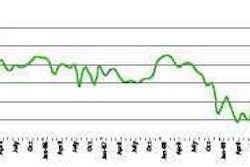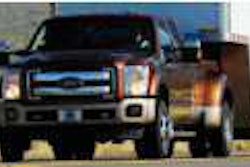 Henry Seaton -- [email protected]
Henry Seaton -- [email protected]FMCSA’s insurance rules are crazy and flawed
Q We are a small carrier that obtained a U.S. Department of Transportation number by filing an MCS-150 and checking the block for exempt for-hire freight. We transported newspaper inserts at the time. We use owner-operators who have their own equipment that they insure and who place our name and DOT number on their trucks. We now are handling magazines and books and have been told we can be fined for every day we don’t have authority. Can this be right?
AYes, it is. After years of inaction, the Federal Motor Carrier Safety Administration now is fining carriers that have DOT numbers but no authority as much as $4,000 to $7,000 per day for hauling regulated shipments. At one time, what was regulated and what was exempt made a real difference when entry controls restricted for-hire carriers’ access to manufactured goods. But after deregulation, it makes no economic difference whether you are hauling newspaper inserts that are exempt or magazines that are regulated.
Other examples of the dichotomy between regulated and exempt shipments are even more inexplicable. Bananas are regulated, while strawberries are not. Shipments that have a prior or subsequent movement by air are exempt, but expedited shipments in which motor carrier service is substituted for air freight is regulated – unless it results from inclement weather.
No procedures are in place to track private and exempt carriers.
FMCSA’s primary obligation is enforcing the safety regulations that apply to all commercial motor vehicles regardless of whether the freight being transported is exempt, regulated or moving in private carriage. The only distinction between exempt and regulated carriers from a regulatory point of view relates to licensing and insurance. Regulated carriers who transport regulated freight must file an OP-1 application, obtain an MC number and post evidence of insurance in the amount of at least $750,000 per occurrence if they operate commercial vehicles weighing more than 10,001 lbs. GVWR.
The shipping public can check with the FMCSA Licensing and Insurance website (go to www.fmcsa.dot.gov, click on the Registration & Licensing tab) and confirm that the regulated carrier is licensed, authorized and insured before using it. Similarly, FMCSA can revoke any regulated carrier’s authority if its insurer cancels its public liability insurance.
Unfortunately, the same rules do not apply for private and exempt carriers. Many who think they are exempt carriers, including you, obtain a DOT number and do not recognize that you must maintain an MCS-90 evidencing a minimum of $750,000 per occurrence in insurance on each vehicle that bears your logo and DOT number. Although new carriers who will be subject to FMCSA audit procedures may learn of these requirements the hard way, to my knowledge there is no procedure in place to ensure the public that exempt or private carriers operating commercial motor vehicles are insured adequately.
As a result, the perfectly sane system that assures the traveling public that transporters of regulated goods have insurance does not work for exempt or private carriers. Only after a highway wreck can it be determined whether the exempt motor carrier is actually in compliance with the statute. It is crazy to have a safety system that is not uniform and that allows one for-hire carrier to haul strawberries without monitoring and verifying its insurance on a continuing basis and another to haul bananas on the condition that it can later show proof that this vital insurance remains in effect.
Congress apparently agreed with me and in SAFETEA-LU moved to correct this defect by requiring FMCSA to obtain and log in insurance and agent information for all operators of commercial motor vehicles regardless of the commodities carried. (See 49 U.S.C. 31139.) Unfortunately, the agency has not moved to comply with Congress’ mandate by requiring all carriers to place on file evidence of their insurance.
I wonder how many exempt and private carriers, as a result of this confusion, are running up and down the road with DOT numbers on the door and little or no active insurance. Under 49 C.F.R. 387.7(d), you are required to have an MCS-90 endorsement in your office showing that as a carrier you have insurance on all equipment you own or operate. Clearly, you are supposed to know and follow the rules, but assessing big fines to you for magazines rather than newspapers begs the issue. Isn’t the public better served by FMCSA enrolling all carriers in its licensing and insurance database and verifying that the operators of commercial motor vehicles actually have continually current and active insurance and agents? n
– Henry Seaton is a transportation lawyer who represents carriers.
In brief
* The Federal Motor Carrier Safety Administration is proposing to establish direct final rulemaking procedures that would allow the agency to make noncontroversial regulatory changes unless it receives written adverse comments by specified dates. The process would not be used for complex or controversial issues, FMCSA says. Comments are due April 16. For a copy of the proposal, go to www.regulations.gov and search FMCSA-2009-0354.
* The U.S. Court of Appeals for the Eighth Circuit is allowing a terminated Yellow Transportation driver to proceed with his race discrimination case against the trucking company. The appeals court said that material factual disputes over the driver’s attendance and availability record and Yellow’s equal application of its policies made the lower court’s grant of summary judgment to Yellow inappropriate.
* Wyoming is the 20th state to enact a statewide ban prohibiting drivers from texting while behind the wheel. The new ban will allow law enforcement officials to ticket anyone caught texting while driving in Wyoming.
* FMCSA issued an emergency shutdown order against Tierra Santa Inc., which was operating illegally when it was involved in a March 5 bus crash in Phoenix that killed six passengers. Tierra Santa, which in April 2009 had applied for passenger carrier operating authority, was notified by FMCSA in December 2009 that it was not authorized to engage in the interstate transportation of passengers by commercial motor vehicle.
* JNE Trucking Co. Inc. and company president Jamie Meras were sentenced Feb. 1 in U.S. District Court for the Central District of California for making false statements and fraudulent reproduction of motor carrier records.









